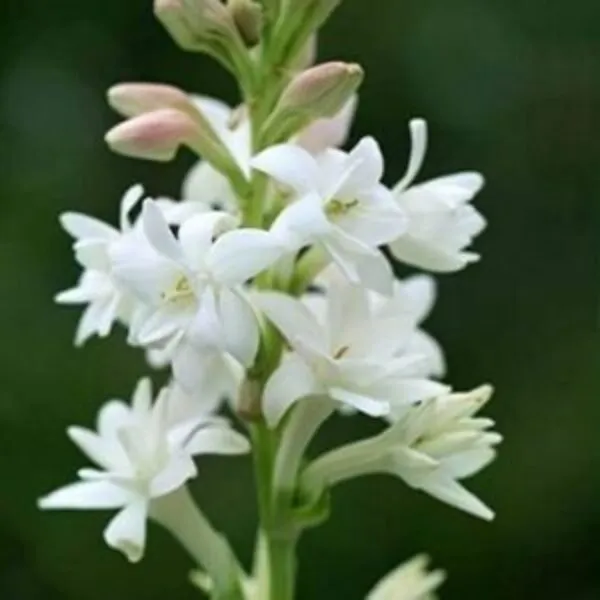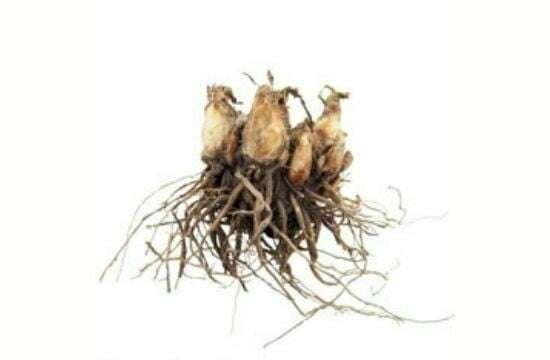Rajnigandha Bulb (1pc)
Original price was: ₹50.0.₹25.0Current price is: ₹25.0.
Rajnigandha has been a part of Indian culture and tradition for a very long time and is often used before or during auspicious occasions to promote peace of mind and happiness. It is known to relieve stress and curb anxious emotions. Try our non-GMO Rajnigandha Bulb. Also, check out our workshops for more details.
PRODUCT DESCRIPTION
Number of Bulbs in a packet – 1
PLANT DESCRIPTION
- Difficulty level – Easy
- Plant Height – Upto 3 feet
- Flower Colour – White
- Type – Outdoor
- Feed – VermiCompost for nutrients every week, Seaweed once a month for greener leaves, and Epsom salt for better blooming once a month.
- Watering – 2 times a week
- Sunlight – Full sunlight
- Germination Time – 1 – 2 weeks
- Flowering time – 90 – 120 days
- Suitable Temperature – 15°C – 25°C
- Season – Summer
- Sowing – January
ALTERNATE NAME
Botanical name: Polianthes tuberosa
rajnigandha bulb in hindi: Rajaneegandha phool (रजनीगंधा फूल)
rajnigandha bulb in tamil: Rajinigandha Malar (ரஜினிகந்தா மலர்)
rajnigandha bulb in telugu: Rājnigandha puvvu (రాజ్నిగంధ పువ్వు), bulbd
rajnigandha bulb in kannada: Rājanigandha hūvu (ರಾಜನಿಗಂಧ ಹೂವು)
rajnigandha bulb in bengali: Rajanīgandhā phula (রজনীগন্ধা ফুল)
Other names: rajinigandha bulbs, raganigandha Tuberose, Rajniganda, Bulp, Mulb.
You must be logged in to post a review.
Q & A
Organic flower seeds can contribute to sustainability in several ways:
Environmental Impact: Organic flower seeds are produced without the use of synthetic pesticides, herbicides, and genetically modified organisms (GMOs). This reduces the environmental impact of conventional farming practices that often contribute to soil degradation, water pollution, and harm to beneficial insects and wildlife. Organic farming methods focus on promoting soil health, biodiversity, and natural pest control, which helps protect ecosystems and reduce overall environmental damage.
Soil Health: Organic farming practices prioritize the use of compost, cover crops, and crop rotation to enhance soil fertility and structure. By avoiding synthetic fertilizers and chemical inputs, organic flower seeds contribute to the development of healthy and nutrient-rich soils. This approach helps to maintain soil biodiversity, increase water retention, and reduce erosion, ensuring long-term sustainability of agricultural land.
Genetic Diversity: Organic flower seeds are often sourced from heirloom or open-pollinated varieties, which have not been genetically modified or patented. This promotes genetic diversity and preserves traditional plant varieties that may be better adapted to local environments. Maintaining diverse seed stocks is crucial for long-term agricultural resilience, as it enables plants to adapt to changing environmental conditions and resist pests and diseases.
Human Health: Organic flower seeds are grown without the use of synthetic pesticides, which can be harmful to human health. By choosing organic seeds, you support a healthier and more sustainable approach to farming that prioritizes the well-being of farmers, farm workers, and consumers. Organic farming also reduces exposure to potentially harmful residues on flowers, ensuring safer and more sustainable floral products.
Supporting Sustainable Agriculture: Buying and planting organic flower seeds supports organic farming practices and encourages their adoption by more farmers. By creating demand for organic products, consumers can contribute to the growth of sustainable agriculture, promote ecological stewardship, and encourage the reduction of chemical-intensive farming methods.
It's important to note that the sustainability of organic flower seeds also depends on other factors such as responsible water usage, energy-efficient production practices, and responsible waste management throughout the entire supply chain. Choosing certified organic seeds from reputable sources can help ensure the authenticity and sustainability of the seeds you purchase.
General Inquiries
There are no inquiries yet.




Reviews
There are no reviews yet.